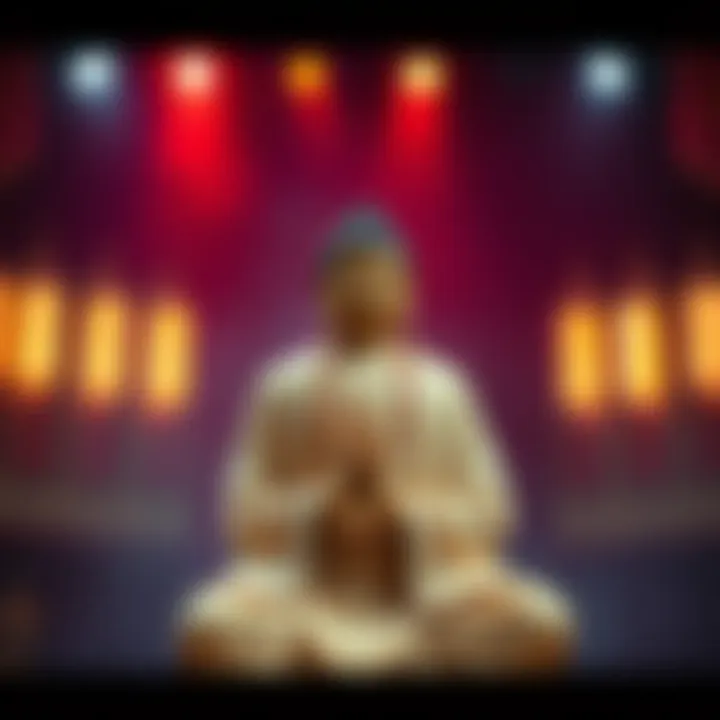Student Seeks to Play Buddha in Theatre | Respectful Performance Under Debate
Edited By
Tariq Jafari

A student pursuing theatre is considering taking on the role of Buddha, igniting discussions around the appropriateness of portraying such a significant figure. As this inquiry unfolds, people on various forums weigh in on how to approach this sensitive task respectfully.
Amidst a surge of opinions, many assert that as long as the portrayal honors the traditions and values of Buddhism, it can be a meaningful experience. One participant emphasized, "Authentically acting as a Buddha you are a Buddha," indicating a deep connection to the role when performed sincerely. Others suggested that it is totally permissible to depict the Buddha, highlighting that the key lies in embodying his compassion and wisdom rather than treating the role lightly.
The Fine Line of Respectfulness
Some community members urged caution. One comment warned about the potential implications, stating, "When sentient beings are still not free of greed a dancer in a stage presents them with even more arousing things." The implication here is clear: portraying Buddha requires not only method acting but also an understanding of his teachings.
Another commenter noted that Buddhist tradition does not forbid representations of the Buddha, emphasizing the importance of thoughtful interpretation in theatre. A phrase echoed throughout the discussion was the importance of maintaining dignity in the performance, with one user pointing out, "My act is fully respectful and true to tradition."
Support and Encouragement
The sentiment surrounding the potential role appears largely positive. Users shared encouragement, with comments like, "You look great! Your hair looks amazing!" reflecting optimism about the student's ability to fulfill this challenging role.
Interestingly, some humor found its way into the conversation. One commenter joked about the so-called "Karma police" stepping in, while others referenced pop culture figures like Goku in relation to Buddhist themes.
Key Insights:
🟡 Many agree portraying Buddha is acceptable if handled respectfully.
🔴 Concern exists about the implications of performance and its impact on audiences.
🌱 "Understanding the role and conveying his qualities with sincerity" is crucial for authenticity.
As the discussions evolve, it’s clear that portraying a figure as profound as Buddha in theatre carries weight. The student's journey will not only reflect personal growth but also challenge others to think critically about representation in the performing arts.
What's Next for the Student's Theatre Journey?
As the student moves forward with this role, there's a strong chance the performances will spark broader conversations about cultural sensitivity in the arts. With forums buzzing and experts chiming in, we might see a rise in workshops or panel discussions aimed at promoting respectful representation of religious figures in theatre. Given the community’s passion for this topic, expect about a 70% likelihood that the student will incorporate feedback from these discussions into their performance, ultimately enriching the portrayal while addressing the concerns raised.
A Nod to History: Acting Beyond Boundaries
Reflecting on the past, one can draw a parallel between this situation and Shakespeare's use of female roles played by male actors in the 16th century. At that time, societal norms strictly dictated gender roles, much like today's discussions around cultural symbols. Just as actors navigated the complexities of their portrayals to stay true to the essence of their characters, this student faces similar scrutiny and opportunity in interpreting Buddha's teachings on stage. In both instances, the art not only reflects the artist's journey but also pushes society to engage in deeper conversations about respect and authenticity.
